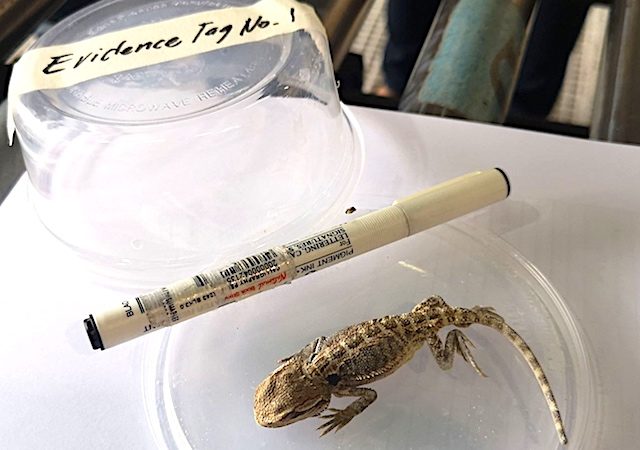SUMMARY
This is AI generated summarization, which may have errors. For context, always refer to the full article.

PAMPANGA, Philippines – The Department of Environment and Natural Resources (DENR) has placed Clark Freeport Zone in this province and the Subic Bay Freeport Zone in Zambales under tight watch as part of the agency’s campaign against illegal wildlife trade.
“The DENR has placed Clark and Subic Freeport Zones under tight watch as their strategic locations make them irresistible to smugglers attempting to transport wildlife poached from other countries and parts of the Philippines such as Aurora and Palawan,” Paquito Moreno, executive director of DENR-Region 3, said in a press statement.
“We have tightened our watch on wildlife trafficking even during the COVID-19 pandemic, especially in our airports and seaports in the region, since these are potential gateways for illegal wildlife trade,” he added.
DENR-Region 3 issued the statement days after it seized a juvenile bearded dragon at the Clark International Airport here, upon receiving a report about the wildlife cargo from a shipping company operating in that airport.
Citing the shipping manifest, DENR-Region 3 said that the bearded dragon was sent by an online pet seller to a consignee that had no import permit, in violation of Republic Act No. 9147 or the Wildlife Resources Conservation and Protection Act of 2001.
The seller and the consignee were not identified.
Upon opening the package, the DENR-3 personnel discovered that the bearded dragon was already dead. DENR-3 said it was “shipped in a lidded plastic bowl without food, water, or appropriate padding inside the container.”
The DENR-Region 3 said that the scientific name of the bearded dragon is Pagona vitticeps and that the “bearded” refers to a flap of skin under the chin that they extend when disturbed.
It said that the desert lizard can grow to to 30 to 60 centimeters, and has a life expectancy of 10 years.
“Pet enthusiasts are fond of keeping this reptile species because it is easy to maintain and has a wide variety of food diets,” DENR-3 added.
Moreno said that DENR’s Central Luzon office has seized 311 species of illegally traded reptiles, birds, and mammals since 2015.
DENR-Region 3 said that the Asian Development Bank had pegged the illegal wildlife trade in the Philippines at P50 billion per year.
“This includes the market value of wildlife and its resources, their ecological role and value, damage to habitats incurred during poaching, and loss in potential ecotourism revenues,” it added.
In 2019, Customs officials discovered a live python hidden inside a bluetooth speaker at the Ninoy Aquino International Airport. That same year, the Bureau of Customs intercepted the attempted smuggling of 757 live venomous tarantulas from Poland, and also 1,529 turtles and tortoises from Hong Kong.
The import, export, and trade of wildlife animals without necessary permits violate RA 9147 and RA 10863 or the Customs Modernization and Tariff Act.
Violators face up to two years of imprisonment and a maximum fine of P200,000. – Rappler.com
Add a comment
How does this make you feel?
There are no comments yet. Add your comment to start the conversation.